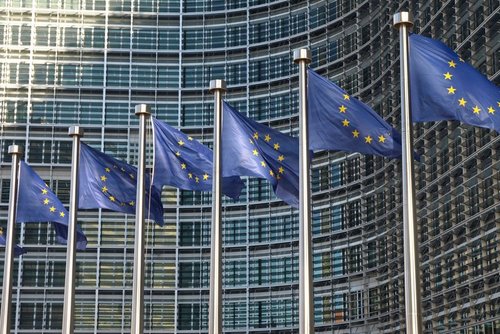The European Commission will launch its action plan for the Capital Markets Union (CMU) this Thursday. The CMU aims at strengthening non-bank finance alternatives for non-financial companies, especially for small and medium-sized companies. Up to now, it is not clear if the Commission will aim at strengthening shadow banking besides fostering equity and bond issuance as financing alternatives.

European Capital Markets Union: The EU Commission's Action Plan – US Style Finance?
The CMU can be seen as a long-term project for enhancing access to finance for non-financial companies, especially for small and medium-sized companies. Many of these companies faced restrictive credit conditions during the crisis as banks in distress cut their lending. Thereby, those companies which lacked of access to capital markets faced more restrictive credit conditions compared to companies which could issue equity or bonds in financial markets. The Commission concluded that the traditional European bank-based financing model has to be enlarged by more capital-market financing alternatives as in the US.
The Commission should, however, consider that capital market financing is often no alternative to bank financing for many small and even for medium-sized companies. Issuing equity and bonds in capital markets can be prohibitively costly for smaller companies due to administrative and bureaucratic burdens. Long-term relationships to their ''Hausbank'', however, provides these companies with preferable financing conditions due to a long track record of the companies' creditworthiness. Solving this problem by lowering administrative burdens for equity and bond issuance, however, can lead to less legal certainty for equity and bond investors. Even in a CMU, it is therefore inevitable to have strong banks with a stable loan supply.
The Commission can foster bank lending to companies by reviving securitization. In securitization or structured finance, the bank bundles lots of loans into a tradable security with a pay-off structure comparable to a bond, which it sells to investors. This structured finance model came under distress after the US subprime crisis as the US housing bubble busted and investors sold these asset in panic after they realized that these assets were more risky than originally assumed. This underpricing of risk was, however, due to the fact that these products were too complex and less transparent in the past. Securitizations are needed for banks to free equity capital for originating new loans. They can be revived by making these assets simple and transparent as the Commission intends it. As a best practice example the Commission should regard the German True Sale International quality sign.
If the Commission should consider to foster the loan intermediation of other non-bank financial institutions, like loan-originating funds, it should guarantee to maintain a level-playing field between banks and non-banks. This is especially the case for loan-originating funds which are regulated as alternative investment funds and which are thereby less regulated as banks. The Commission should avoid regulatory loopholes in order to prevent risks to materialize in unregulated dark corners of the financial system.
More on the topic
![[Translate to English:] Das Gebäude des Weißen Hauses in Washington, D.C. in den Vereinigten Staaten von Amerika. [Translate to English:] Das Gebäude des Weißen Hauses in Washington, D.C. in den Vereinigten Staaten von Amerika.](/fileadmin/_processed_/c/1/csm_GettyImages-2161499385_White_House_Editorial_884306add8.jpg)
Trump or Harris or ...? What Europe must prepare for
A few months before the presidential election in the USA, Donald Trump has a good chance of being re-elected. On the Democratic side, the incumbent president has withdrawn his candidacy after a long period of hesitation, while Vice President Kamala Harris is ...
IW
Compendium 5.5: CO2 Regulation of Road Transport in Europe
With the Compendium CO2 Regulation in Europe, the IW has been providing the interested public with a comprehensive collection of data on the development of CO2 emissions from passenger car traffic in the European Union, as well as on the applicable regulatory ...
IW